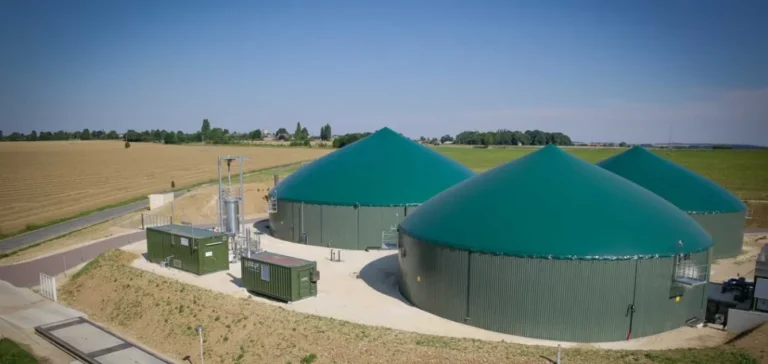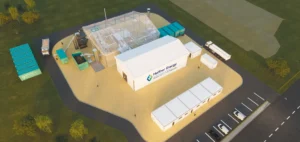Teréga, a gas transport and storage infrastructure manager, and Gaz Réseau Distribution France (GRDF) jointly inaugurated in Auch, in the Gers department, the first biomethane reverse-flow station in the Occitanie region. This technical installation, with a capacity exceeding 850 Nm³/h, allows reversing the traditional gas flow direction, thus enabling local surplus biomethane production to move from the distribution network up to the transport network.
Regional technical infrastructures
Traditionally, natural gas flows from transport networks towards distribution networks to supply end-users. A reverse-flow station reverses this logic by reinjecting locally produced surplus biomethane from the distribution network back into the transport network. This mechanism ensures optimal use of regional biomethane production, particularly during periods of low local consumption, such as summer months or weekends.
The station inaugurated in Auch represents an investment of €3mn ($3.27mn). Construction started in December 2023, with commissioning effective in July 2024. It complements other initiatives carried out by Teréga in the Nouvelle-Aquitaine region, notably with a similar station recently commissioned in early June in Nérac (Lot-et-Garonne) and another planned shortly in Boussens (Haute-Garonne).
Development of the biomethane industry
Occitanie currently has 30 active methanisation units collectively injecting approximately 660 gigawatt-hours per year (GWh/year) into regional networks. According to GRDF, this volume of biomethane equates to the annual heating needs of 150,000 gas-connected homes.
To support this growing production, existing infrastructures are progressively undergoing technical upgrades aimed at maximizing biomethane integration. GRDF, the concessionaire managing the public gas distribution network, has thus led several network connection projects at municipal level to support this regional trend.
Regional energy ambitions
These technical installations are integral to regional objectives to raise renewable energies to 20% of Occitanie’s total energy consumption by 2030. The long-term regional ambition aims to reach 100% renewable gas by 2050.
Carolle Foissaud, President and CEO of Teréga, said: “This first reverse-flow station in Occitanie concretely illustrates our commitment to making our territories key players in the energy transition. The stakes are significant, not only for the beneficiaries of these infrastructures but also to position the greater South-West as a pioneer in renewable energies.”






















